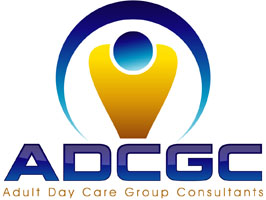Definitions
The following words and terms, when used in this chapter, shall have the following meanings, unless the context clearly indicates otherwise:
“Activities of daily living” (ADL) means the functions or tasks for self-care which are performed either independently or with supervision or assistance. Activities of daily living include at least mobility, transferring, walking, grooming, bathing, dressing and undressing, eating, and toileting.
“Adult day health care center” means a facility or a distinct part of a facility which is licensed by the State Department of Health to provide preventive, diagnostic, therapeutic, and rehabilitative services under medical supervision to meet the needs of functionally impaired adult clients who are not related to the members of the governing authority by marriage, blood, or adoption. Adult day health care centers provide services to clients for a period of time which does not exceed 12 hours during any calendar day.
“Ancillary nursing personnel” means unlicensed workers employed to assist licensed nursing personnel.
“Available” means ready for immediate use (pertaining to equipment) or capable of being reached (pertaining to personnel), unless otherwise defined.
“Bylaws” means a set of rules adopted by the Center for governing its operation. A charter, articles of incorporation, and/or a statement of policies and objectives is an acceptable equivalent.
“Cleaning” means the removal by scrubbing and washing, as with hot water, soap or detergent, and vacuuming, of infectious agents and of organic matter from surfaces on which and in which infectious agents may find conditions for surviving or multiplying.
“Client plan of care” means a written plan of client care which contains documentation of joint planning by the multidisciplinary team. The plan is based upon the client assessments of all services participating in the client’s care and includes care and treatment to be provided. Each service that the client receives develops it’s own portion of the client plan of care.
“Clinical note” means a written, signed, and dated notation made by a health care professional who renders a service to the client. Clinical notes are written into the client’s medical record the day service is rendered.
“Commissioner” means the State Commissioner of Health.
“Communicable disease” means an illness due to a specific infectious agent or its toxic products which occurs through transmission of that agent or its products from a reservoir to a susceptible host.
”Conspicuously posted” means placed at a location within the Center accessible to and seen by clients and the public.
“Contamination” means the presence of an infectious or toxic agent in the air, on a body surface, or on or in clothes, bedding, instruments, dressings, or other inanimate articles or substances, including water, milk, and food.
“Controlled Dangerous Substances Acts” means the Controlled Substances (Title II, Public Law 91-513)
“Current” means up-to-date, extending to the present time.
”Daily census” means the number of client equivalents who, during any one calendar day, receive services in the Center. The number of client equivalents is calculated by dividing the sum of all of the hours of services received by clients in the Center on a given day by the number five. For example, two clients each receiving 2.5 hours of service constitute one client equivalent.
“Department” means the State Department of Health.
“Document” means written, signed, and dated.
“Disinfection” means the killing of infectious agents outside the body, or organisms transmitting such agents, by chemical and physical means, directly applied.
“Drug” means a substance as defined in the Board of Pharmacy Rules, The word “medication” is used interchangeably with the word “drug” in this manual.
“Drug administration” means a procedure in which a prescribed drug is given to a client by an authorized person in accordance with all laws and rules governing such procedures. The complete procedure of administration includes removing an individual dose from a previously dispensed, properly labeled container (including a unit dose container), verifying it with the prescriber’s orders, giving the individual dose to the client, seeing that the client takes it (if oral), and recording the required information, including the method of administration.
”Epidemic” means the occurrence in the Center of one or more cases of an illness in excess of normal expectancy for that illness, derived from a common or propagated source.
“Family” means persons related by blood, marriage, or commitment.
“Full-time” means relating to a time period of not less than 30 hours, established by the Center as a full working week, as defined and specified in the Center’s policies and procedures. Number of hours to be eligible for specific benefits may vary from the above.
“Governing authority” means the organization, person, or persons designated to assume legal responsibility for the management, operation, and financial viability of the Center.
“Health care facility” means a facility so defined in
”Job description” means written specifications developed for each position in the Center, containing the qualifications, duties and responsibilities, and accountability required of employees in that position.
“Licensed nursing personnel” (licensed nurse) means registered professional nurses or practical (vocational) nurses licensed by the State Board of Nursing.
”Medical record” means all records in the Center which pertain to the client, including radiological films.
“Monitor” means to observe, watch, or check.
“Multidisciplinary team” means those persons, representing different professions, disciplines, and services, who work together to provide an integrated program of care of the client.
“Nosocomial infection” means an infection acquired by a client while in the Center.
“Prescriber” means a person who is authorized to write prescriptions in accordance with Federal and State laws.
“Progress note” means a written, signed, and dated notation summarizing information about care provided and the client’s response to it.
“Restraint” means a physical device or chemical (drug) used to limit, restrict, or control client movements.
“Self administration” means a procedure in which any medication is taken orally, injected, inserted, or topically or otherwise administered by a client to himself or herself. The complete procedure of self-administration includes removing an individual dose from a previously dispensed, labeled container (including a unit dose container), verifying it with the directions on the label, and taking orally, injecting, inserting, or topically or otherwise administering the medication.
“Signature” means at least the first initial and full surname and title (for example, RN, LPN, DDS, MD, DO) of a person, legibly written with the person’s own hand.
“Staff education plan” means a written plan which describes a coordinated for staff education for each service, including in-service programs and on-the-job-training.
“Staff orientation plan” means a written plan for the orientation of each new program employee to the duties and responsibilities of the service to which the employee has been assigned, as well as to the personnel policies of the Center.
“Sterilization” means a process of destroying all microorganisms, including those bearing spores, in, on, and around an object.
‘Supervision” means authoritative procedural guidance by a qualified person for the accomplishment of a function or activity within his or her sphere of competence, with initial direction and periodic on-site inspection of the actual act of accomplishing the function or activity.
- ”Direct supervision” means supervision on the premises within view of the supervisor.
“Transportation services” means the conveying of client between the Center and the client’s home.
“Unit dose drug distribution system” means a system in which drugs are delivered in single unit packaging. Each client has his or her own receptacle, such as a tray, bin, box, cassette, drawer, or compartment, labeled with his or her first and last name and containing his or her own medications. Each medication is individually wrapped and labeled with the generic name, trade name (if appropriate), strength of the drug, lot number or reference code, expiration date, and manufacturer’s or distributor’s name, and ready for administration to the client.

